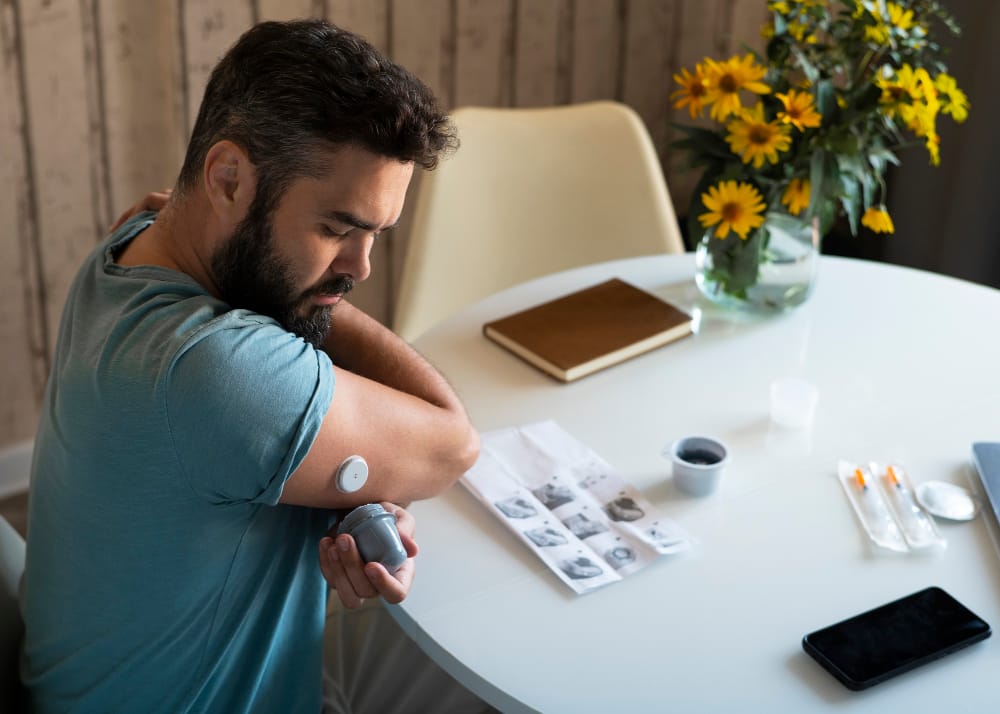India, a nation with over 1.4 billion people, faces unique challenges in providing accessible and affordable healthcare to its vast and diverse population. However, with rapid advancements in technology, the Indian healthcare industry is undergoing a transformative revolution. From telemedicine to artificial intelligence (AI), digital platforms, and wearable devices, technology is bridging the gap between patients and quality care. Let’s delve into how this transformation is reshaping healthcare in India.
Let’s delve into how this transformation is reshaping healthcare in India.
Tele-medicine: Healthcare at Your Fingertips
Telemedicine has emerged as a game-changer in India, especially in rural and remote areas where access to healthcare facilities is limited. Platforms like Practo, mfine, and Apollo 24/7 enable patients to consult doctors virtually, eliminating the need for long travel and wait times. During the COVID-19 pandemic, telemedicine witnessed exponential growth, proving its potential to address healthcare inequities. The government’s approval of telemedicine guidelines has further legitimized and encouraged its adoption.
AI and Machine Learning: Redefining Diagnostics and Treatment
Artificial intelligence (AI) is playing a pivotal role in revolutionizing diagnostics and personalized treatment. AI-powered tools can analyze medical images, detect anomalies, and predict diseases with remarkable accuracy. For instance, Qure.ai, an Indian startup, uses AI to interpret X-rays and CT scans, significantly reducing diagnostic time. Machine learning algorithms are also aiding in drug discovery, making treatments more effective and accessible.
Wearable Technology: Promoting Preventive Healthcare
Wearable devices like fitness bands and smartwatches are empowering individuals to take charge of their health. Devices from companies like GOQii and Noise monitor vital signs such as heart rate, blood pressure, and sleep patterns, encouraging preventive care. These technologies help individuals detect early signs of health issues, promoting timely intervention and reducing the burden on healthcare systems.
Digital Health Records: Enhancing Data Accessibility
India’s healthcare system has long struggled with fragmented and inaccessible patient data. The introduction of digital health records under the Ayushman Bharat Digital Mission (ABDM) aims to centralize and streamline health information. Patients and doctors can now access medical records seamlessly, improving continuity of care and reducing redundant diagnostic tests.
Robotics and Automation: Transforming Surgeries and Operations
Robotic surgeries and automated healthcare solutions are gaining traction in India. Surgical robots enable minimally invasive procedures, reducing recovery time and improving outcomes. Companies like SS Innovations are making robotic surgery more accessible to Indian hospitals. Automation in administrative tasks, such as appointment scheduling and billing, is also improving efficiency in healthcare facilities.
Pharmaceutical E-commerce: Convenient Access to Medicines
Online pharmacies like 1mg, Netmeds, and PharmEasy are revolutionizing how Indians purchase medicines. These platforms offer doorstep delivery, transparent pricing, and access to a wide range of products, making healthcare more convenient. Additionally, they integrate diagnostic services, creating a holistic healthcare ecosystem.
Blockchain in Healthcare: Securing Data and Enhancing Trust
Blockchain technology is addressing critical issues like data security and authenticity in the Indian healthcare sector. By creating tamper-proof medical records, blockchain ensures patient privacy and builds trust between stakeholders. It also facilitates secure sharing of data among healthcare providers, enhancing collaboration and decision-making.
Healthtech Startups: Driving Innovation
India’s burgeoning healthtech ecosystem is at the forefront of this technological revolution. Startups like Portea, HealthifyMe, and Dozee are offering innovative solutions ranging from at-home healthcare services to AI-based fitness coaching and remote patient monitoring. These companies are not only addressing urban healthcare needs but also extending their reach to underserved regions.
Government Initiatives: Catalyzing Change
The Indian government has been proactive in leveraging technology to improve healthcare access. Initiatives like the National Health Digital Mission and e-Sanjeevani (a telemedicine service) are paving the way for a more inclusive healthcare system. Public-private partnerships are also fostering innovation and expanding healthcare services to remote corners of the country.
Challenges and the Road Ahead
While technology is revolutionizing Indian healthcare, challenges like digital literacy, infrastructure gaps, and data privacy concerns persist. Bridging the digital divide and ensuring equitable access to these advancements remain critical. However, with continuous innovation, collaboration, and supportive policies, the future of healthcare in India looks promising.

The Results
- Technology is undeniably transforming the Indian healthcare landscape, making it more accessible, affordable, and efficient. From telemedicine and AI to wearable devices and blockchain, these advancements are addressing the country’s unique healthcare challenges. As India embraces this digital revolution, it is poised to set a global example of how technology can be leveraged to improve healthcare outcomes for all.


